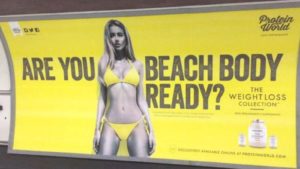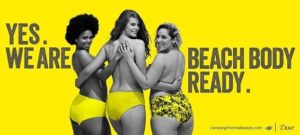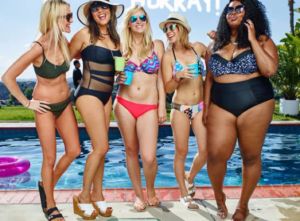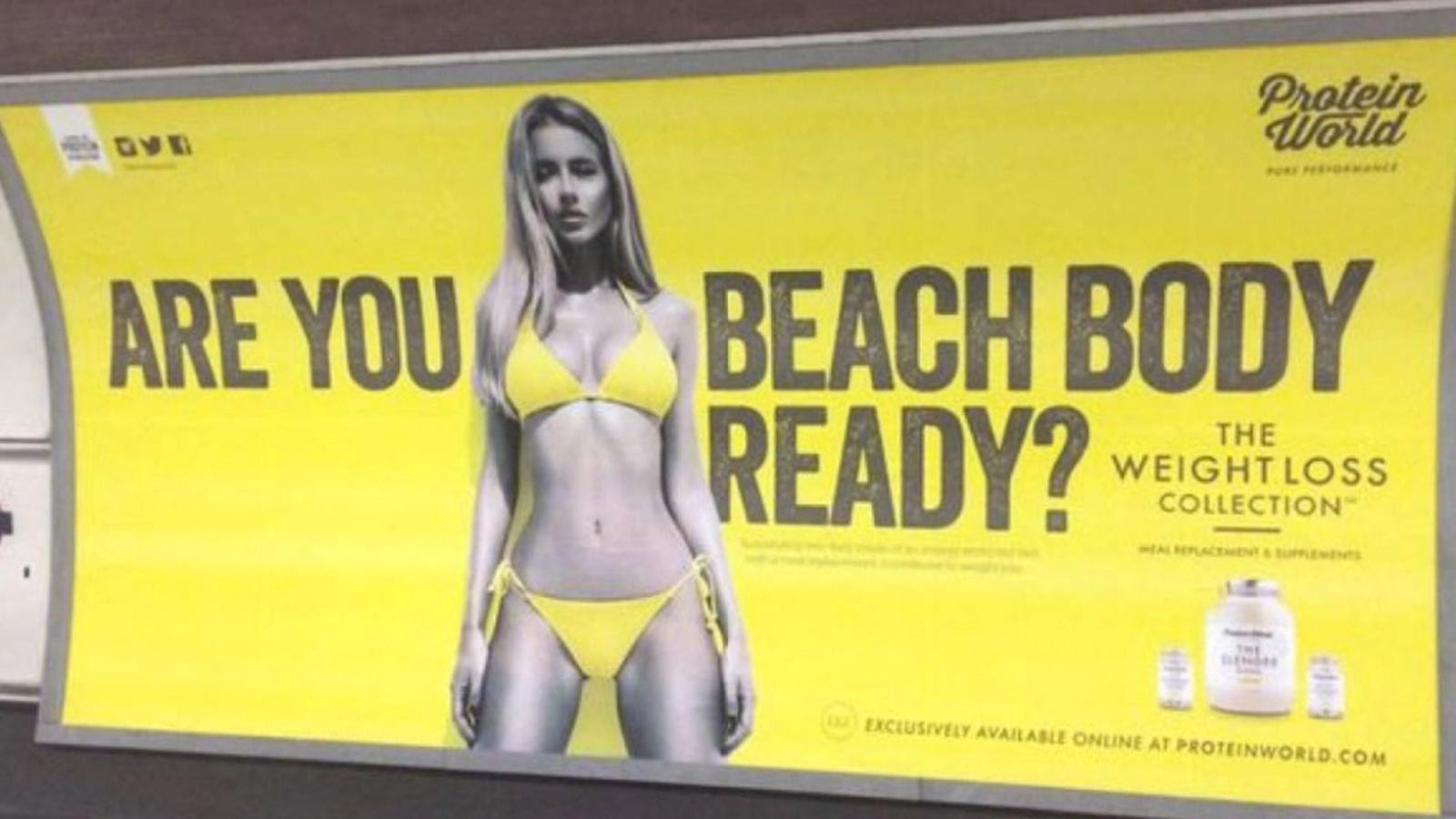As an eager University student I remember being told that you should always outline your argument at the beginning of an essay before going on to prove why your hypothesis is correct. For the purpose of this article I am going to do the former, although avoid the latter. Because, my hypothesis is honestly that I don’t know the answer. I don’t know if we ever could/should/would besmirch aspirational marketing and I remain unconvinced inspirational marketing would shift half as much product. But, I do think it is an issue that needs to be addressed, if for no better reason than one day I hope to have children and I don’t want them growing up a world where unless you look like Kim Kardashian you are not pretty enough. Because, clearly that is utter toss.
Now that I have completely ruined the ending of my article, I hope you will remain compelled to read on. So first things first – what do I mean by aspirational marketing. Well any product or service that uses a beautiful, although often heavily photoshopped, individual to promote their product. The obvious example of this would be Protein World who released a much derided ad featuring an incredibly toned and gorgeous model, accompanied by the phrase “are you beach body ready? The idea that you had to be a size 8 or less to go on the beach, unsurprisingly, pissed a lot of people off and such was the backlash that TFL ultimately took the offending ad down.

In retaliation, Dove – the queen of inspirational marketing, released a retaliatory campaign of “normal” women modelling their perfectly normal bodies, stating that they were indeed “beach body ready.”

Now, I don’t question that Protein World are clearly glorifying unrealistic, unattainable standards of beauty in their ads. Nor do I disapprove of Dove’s exceptionally clever, and timely response that capitalised on a sentiment that was sweeping the nation. However, I do question why precisely Protein World were absolutely lambasted on social media – when companies worldwide adhere to the same unspoken rules that you have to be skinny, beautiful and airbrushed to appear in a marketing campaign. They were neither the first nor will they be the last – just googling “bikini ads” brings up the same image time and time again – thin, pretty girls wearing stringy bikinis – with H & M, Calvin Klein, Beach Bunny and Harvey Nichols just some of the offending brands. The one exception being Target (the Amercian Tesco) featuring “real women” in their bikini ads, although from what I can see this is an image of three thin white girls, one Hispanic curvier girl and one plus sized Afro-American women. So they are hardly, like, smashing societal norms.

Protein World may have been explicit, but it seems to me most brands are singing to the same hymn sheet. And it is one, we as a society, have a part in writing. Because, as any marketer knows full well – ad campaigns are built around users, so if we stopped buying, they would change the way they were selling. And Dove and Target are unique in their approaches – most brands do pretty well as they are. Let’s not forget that Victoria’s Secret made $1.2 billion profit in 2015 despite never having used a plus sized model.
So what do I think? Well I think that secretly we all enjoy a good ol’ piece of aspirational marketing. And I also think that anyone with an Instagram account knows that the difference between appearance and artifice is only a filter away. I also think that we can all agree that the far too many sufferers at both ends of the spectrum – those who are over and under weight – face unbearable daily challenges that cannot be purely blamed on ads.
But, does the lack of diversity within the marketing world concern me? Absolutely. Do I wish that models weren’t photoshopped into unrecognisable beings? Hell yes. And do I wish that, just once, a size 12 model would grace the cover of a glossy magazine. Undoubtedly.
I really would love to hear your thoughts on this! Feel free to comment below with your feedback, or drop me an email on 07826 857 882.

